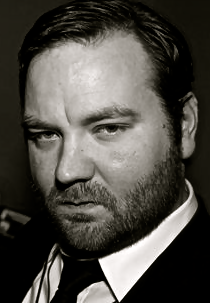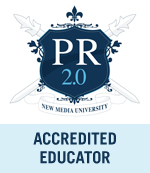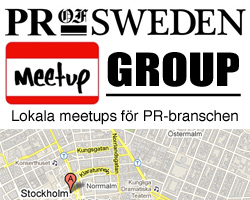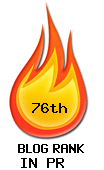My best career advice for PR? Easy. Learn how to write. And how to do it quickly.
If you can write, and write fast, then you’ll probably never be useless. Putting things into words is a skill, make no mistake about it. And if you’re good at it, there will always be something that you can do.
Getting brilliant people into a room is one thing. Actually condensing what the heck they’re talking about on the screen, now that’s a different story altogether. The creatives will feel good about themselves when they see their crazy ideas coherently presented in words, the ones reading it will actually understand what’s going on and your team members will ask you to that thing that you do - again and again.
Somewhere in the process, you need a solid writer. And the good thing is, that you don’t need a lot of industry experience either. You could just go into a situation, listen and then ask the questions needed on behalf of the potential readers of the text, and with them in mind, put it all together. And since you’re a solid writer, you don’t just put it together, no, you make it sing.
Then add speed to the mix. This is the big differentiator. If you combine solid writing with speed, then you’re golden. Waiting for inspiration? That’s amateur hour.
This has nothing to do with placing your fingers right on the keyboard. No, this all comes down to having a line of thought and going with it. Most people make the mistake of thinking about each and every sentence before they start thinking of the next one. They build sentence on sentence and after a long hard while when the text is done, it makes absolutely no sense.
Instead you should just keep writing. If you have to stop, then you probably have issues with your text. You are probably not sure about what you want to say. And that is a problem. Deal with it by stop writing and start thinking - in essence, what are you trying to explain and where would be a good place to start? Then, when you’re clear on what you want to say, start writing again - from the beginning.
Hopefully, you’ve now learned to never do that same mistake again. Because if you start writing without knowing what you want to say, then you must stop writing and start over, which of course is nothing but a waste of time. If you stop, you fail.
So you start writing and you force yourself to write fast. Personally, I like to really hammer my poor keyboard, just to show who’s boss. And I don’t stop, because I’ve learnt not to put my fingers to the keyboard before I know what I want to say. And then I go at it and I don’t quit until I’m done.
Is the writing then perfect, you wonder? No, by all means no. It isn’t. But revising is best done afterwards. But magic? That stuff goes into the text in the first draft. Drafting and revising is nothing but labor, even though I know a lot of people mistake this to be creative work. But anyone can go into a text and add stuff, or provide feedback on it, but getting something down on paper out of thin air is like painting the first strokes on a canvas. It differentiates the hack from the genius.
And when you’ve gotten something on paper, suddenly everyone wants to be a part of the process. Because now there’s something to work with, to add or subtract to. But the real beauty, the real bravery lies in stepping up to that blank canvas and really painting the picture you want the world to see. Since this is creative work, you won’t know exactly how the finished product will look, but you knew what you wanted to portray.
Those who can’t do what you can do will probably ask you to just “write down what we’ve been saying”. Those who understand the worth of your skill will keep you close always and compensate by allowing you access to their experience, knowledge and their networks. Those who don’t will be dependent on you without knowing exactly why and also - they will have no clue on how your words is actually becoming a factor of influence.
And if you learn this, you’ll become member of a small but elite club of writers. We know what it takes to write, and the pains it took us to get to the level we’re at. We never feel like fake professionals hustling our way to the professional landscape, simply because we feel that we have earned ourself a skill.
As for the PR industry in particular?
There’s always someone who must write that e-mail. Who must write that strategy. That proposal. That pitch. Those meeting notes. Those press releases. Those opinion pieces. If that person is you, then you’ll be forced to understand to a full extent what the heck you’re writing, and then just like that, with some solid hours hammering away on your computer, your not-so-fond-of-writing-peers in the industry will be eating your dust, while you’re handing out strategic advice to CEOs of A-list companies.


 Friend Jerry Silfwer on Facebook
Friend Jerry Silfwer on Facebook Connect With Jerry Silfwer on LinkedIn
Connect With Jerry Silfwer on LinkedIn Subscribe to Spinn's Daily PR Links (RSS)
Subscribe to Spinn's Daily PR Links (RSS) Subscribe to Blog via E-mail
Subscribe to Blog via E-mail Follow @DoktorSpinn on Twitter
Follow @DoktorSpinn on Twitter Jerry Silfwer's Workplace, Whispr Group
Jerry Silfwer's Workplace, Whispr Group










